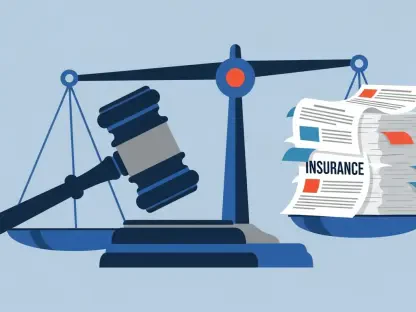Texas’ recent legislative session has been marked by a series of bills fundamentally affecting the lives of transgender and nonbinary individuals. This coordinated effort by Texas lawmakers seeks to redefine child welfare laws, insurance coverage concerning gender-affirming care, and legal recognition of gender identity. The trio of bills—House Bill 1106, Senate Bill 1257, and House Bill 229—has raised alarms among civil rights advocates and LGBTQ communities about substantial steps backward in existing protections. Amid ongoing cultural and political divides, these bills signal profound shifts in state policy, emphasizing biological determinism while challenging broader perspectives on gender diversity. Supporters argue that they advocate for parental authority and safeguard women’s rights, yet critics warn of potential legal challenges and adverse consequences for mental health and civil liberties. As these laws potentially reshape not only Texas but contribute to broader cultural and ideological discussions across the nation, their impact is likely to reverberate far beyond state borders.
Parental Rights and Realities
House Bill 1106 introduces noteworthy changes to the Texas Family Code, delineating parental rights regarding gender identity acknowledgment without equating rejection to abuse or neglect. By permitting parents to disregard a child’s gender identity or preferred pronouns, critics caution that this bill risks fostering environments where psychological harm may occur under the guise of parental care. Rocío Fierro-Pérez from the Texas Freedom Network views this as enabling cruelty while ostensibly defending parental authority, a sentiment echoed by opponents who cite data from the Trevor Project on elevated suicidal ideation among LGBTQ youth experiencing rejection. Proponents maintain the bill upholds parental privileges, often citing media narratives over documented consultations with child protection experts during legislative debates. Such deliberations have highlighted numerous cases of reported abuse linked to non-affirmation but have been met with resistance by those favoring less restriction on parental decision-making. Rep. Matt Shaheen’s sponsorship indicates prioritization of specific cultural narratives, potentially undermining protections afforded to vulnerable youth.
Insurance Liabilities and Healthcare Access
Senate Bill 1257 mandates insurance providers’ extensive liability for adverse outcomes associated with gender-affirming care, criticized as a financial deterrent dubbed the ‘trans tax.’ This legislation raises concerns among opponents regarding insurers possibly refraining from offering essential services due to heightened financial risks. Making transition-related care significantly more expensive threatens the accessibility of vital healthcare, including mental health services, to trans Texans. Advocates for the bill argue for evaluating risks associated with such treatments, but opponents contend that the expedited legislative process reducing public review periods compromised representation of affected communities. If enacted, this bill could severely limit access to necessary healthcare, increasing the challenges faced by transgender individuals seeking support in Texas. The broader implications of this legislative move reflect conflicting values on medical intervention and healthcare rights, intensifying debates on how healthcare systems accommodate varying needs. As insurance companies react to these mandates, trans individuals confront potential barriers to life-saving care.
Legal Recognition and Identity Challenges
House Bill 229, also known as the “Women’s Bill of Rights,” implements a binary gender framework, rooted in biological characteristics at birth, to influence state record-keeping mandates. This move represents a bold approach, affecting official document requirements by enforcing strict adherence to binary gender definitions, effectively denying trans individuals legal acknowledgment of their gender identity. The bill’s critics perceive this measure as divisive and derogatory, undermining legal and social realities for over 120,000 transgender Texans and imposing limitations on their societal recognition. While an amendment to include intersex individuals was accepted, the foundational binary structure persists, raising questions about potential conflicts with federal guidelines and established judicial precedents on identification documentation and broader anti-discrimination protections. Legal experts warn that challenges to this bill may arise, further complicating the alignment between state and federal policies on identity recognition.
Broader Implications and Cultural Divide
Texas has recently enacted a series of laws that significantly impact transgender and nonbinary individuals. These measures, passed by Texas legislators, aim to alter child welfare laws, insurance policies regarding gender-affirming treatments, and the legal acknowledgment of gender identities. The bills, namely House Bill 1106, Senate Bill 1257, and House Bill 229, have provoked concern among civil rights advocates and the LGBTQ community, fearing a regression in existing protections. While supporters argue these laws promote parental rights and defend women’s rights, critics caution that they could lead to legal disputes and negative impacts on mental health and civil rights. These legislative changes, amidst cultural and political divides, highlight a focus on biological determinism and challenge broader views on gender diversity. Their effects are expected to ripple not only through Texas but also to influence national debates on these topics, potentially reshaping the discourse across the country.









